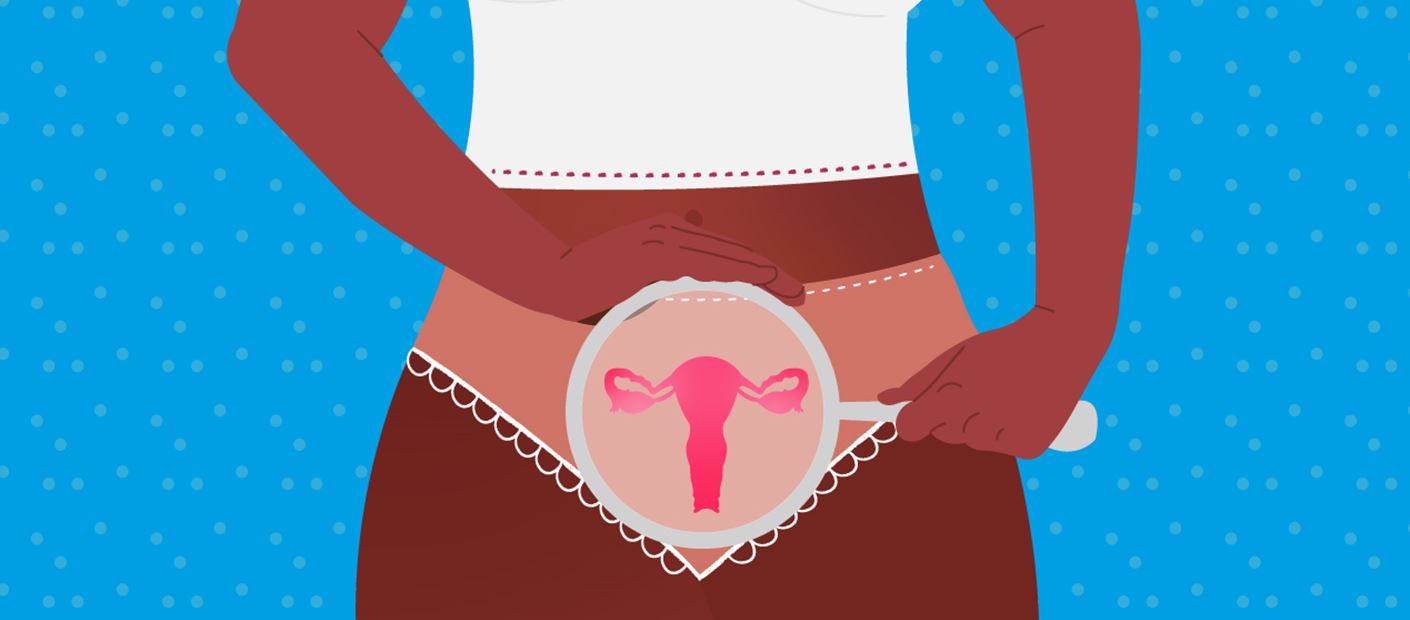
When you talk about taking good care of your body, you don’t always think about your vagina.
But knowing how to look after your vagina can help to keep it comfortable and free from infection. So if you’ve ever wondered how to keep your vagina clean, whether you should be washing it after sex, or even if vaginal steaming is safe, then read on.
How do I clean my vagina?
Step away from the soap as your vagina keeps itself clean, all on its own. From puberty, your vagina self-cleans with the help of normal discharge and good bacteria, called lactobacilli. These help to keep your vagina healthy and prevent the growth of harmful bacteria.
So avoid anything that can disturb the natural balance of your vagina, including:
- getting soap in your vagina when you’re washing
- scented vaginal washes and wipes
- washing inside your vagina (douching)
It’s a good idea to wash the area outside your vagina every day. Your vulva is the area surrounding the opening of your vagina. It includes your labia (or vaginal lips) and clitoris.
When washing your vulva:
- Gently cleanse the folds of your labia using a clean flannel or your hands, taking care not to get soap inside your vagina.
- Be careful to wash from front to back, otherwise you can spread bacteria from your anus to your vagina.
- Make sure you rinse well so no soap is left to irritate your skin.
- Dry gently by dabbing with a soft towel. Don’t rub.
You may find that using perfumed soap makes you feel itchy. Plain warm water, unperfumed soap, or a soap substitute are good alternatives.
Can my underwear irritate my vagina?
It might. Some women find that tight-fitting or synthetic underwear can make their vagina and the area around it feel sore or itchy. Tight trousers could also be to blame. Switching to loose-fitting cotton underwear, or roomier trousers can help to solve the problem. Wearing fresh clean underwear every day is a good idea but you might also want to try wearing no underwear when you’re at home or at night.
How can I keep my vagina healthy during sex?
There are certain things you can do before, during and after sex to care for your vagina.
Before sex:
Sex may be uncomfortable if you’re not relaxed and aroused. Making time for foreplay can help your vagina lubricate itself. You’re more likely to enjoy the sex too.
During sex:
- Use a condom. Not only will using condoms protect you from sexually transmitted infections, but unprotected sex can cause an imbalance of the bacteria in your vagina.
- Avoid using condoms that come with spermicide on them, or using spermicide as a lubricant. It may increase your risk of infection.
- Consider using a lubricant. Water-based lubricants are safe to use with all condoms.
After sex:
- Have a wee after you’ve had sex. This will flush out any germs that have got into the tube that carries urine out of your body (called the urethra) during sex.
- You may want to gently clean your vulva by rinsing with warm water. Don’t douche!
How can I safely remove my pubic hair?
First of all, it’s worth knowing that removing your pubic hair won’t make your vagina cleaner or healthier. How much you have down there is a purely personal choice. But before you grab the hot wax or razor, be aware that some hair removal methods carry a risk of injury.
Shaving your pubic hair comes with the risk of cutting yourself or getting razor burns, and cuts can get infected.
Follow these tips for safer shaving:
- Soak in the tub or have a wash before you start shaving to get rid of bacteria.
- Apply shaving cream, gel, or soap suds to keep your skin lubricated and make shaving easier.
- Shave in the direction that the hair grows, using slow strokes. This will irritate less and be smoother.
- Rinse your skin with warm water after you are done shaving and then pat dry.
Waxing and hair removal creams can also irritate your skin. This can lead to problems such as a deep infection of the skin, called cellulitis, and inflammation of the hair follicles called folliculitis. Always follow the instructions for waxing or hair removal creams and use the correct product for the area.
Should I try vaginal steaming?
Your doctor would prefer that you don’t. Vaginal steaming is a traditional method of cleaning your vagina and uterus. It was recently made popular by the actor Gwyneth Paltrow. Vaginal steaming involves sitting over a container of hot water and herbs, allowing the steam to travel up into your vagina. Vaginas don’t need to be steam cleaned, and you risk irritating or even burning, the delicate skin in that area.
What else can I do to keep my vagina healthy?
It’s a good idea to get to know what’s normal for you. This could mean:
Being aware of what your normal vaginal discharge looks, smells, and feels like across the month so if you notice any changes you can seek help.
Get familiar with what the area around your vagina looks and feels so that you’ll notice any changes in colour, new bumps, itchiness, or burning.
You can also help your vagina to stay healthy by:
- Maintaining a healthy diet.
- Doing pelvic floor exercises.
- Always wipe from front to back after a wee or poo so that you avoid spreading bacteria.
If you have symptoms that are worrying you, Marie Stopes Ghana’s women’s health specialists will discuss your concerns, do an examination if necessary and find the right treatment plan for you. For more information or to make a booking contact us or visit one of our clinics.
When you talk about taking good care of your body, you don’t always think about your vagina. But knowing how to look after your vagina can help to keep it comfortable and free from infection. So if you’ve ever wondered how to keep your vagina clean, whether you should be washing it after sex or even if vaginal steaming is safe, then read on.
If you have symptoms that are worrying you, Marie Stopes Nepal’s women’s health specialists will discuss your concerns, do an examination if necessary and find the right treatment plan for you. For more information or to make a booking contact us or visit one of our clinics.
ACOG. 2020. Vulvovaginal health. American College of Obstetricians and Gynecologists. https://www.acog.org/womens-health/faqs/vulvovaginal-health?
Brito J. 2019. 38 thing to know about sex and foreplay. Healthline. https://www.healthline.com/health/healthy-sex/foreplay-sex
CYWH. 2019. Removing pubic hair. Center for Young Women’s Health. https://youngwomenshealth.org/2013/08/22/removing-pubic-hair/
DerSarkissian C. 2019. Things you should (and shouldn’t) do after sex. WebMD. https://www.webmd.com/sex-relationships/ss/slideshow-sexual-hygiene
Ferguson S. 2019. How to clean your vulva and vagina. Healthline. https://www.healthline.com/health/how-to-clean-your-vagina
NHS. 2018a. Keeping your vagina clean and healthy. NHS, Live well, Sexual health. https://www.nhs.uk/live-well/sexual-health/keeping-your-vagina-clean-and-healthy
NHS. 2018b. Is sex painful the first time? NHS, Common health questions, Sexual health. https://www.nhs.uk/common-health-questions/sexual-health/is-sex-painful-the-first-time/
NHS. 2019. Period problems. NHS, Health A-Z. https://www.nhs.uk/conditions/periods/period-problems/
NHS. 2020. Condoms. Your contraception guide. NHS, Health A to Z. https://www.nhs.uk/conditions/contraception/male-condoms/
NICE. 2017a. Candida – female genital. National Institute for Health and Care Excellence, Clinical Knowledge Summaries. https://cks.nice.org.uk/topics/candida-female-genital/
NICE. 2017b. Herpes simplex – genital: what are the trigger factors for recurrent infection? National Institute for Health and Care Excellence. https://cks.nice.org.uk/topics/herpes-simplex-genital/background-information/trigger-factors/
NICE. 2018. Bacterial vaginosis. National Institute for Health and Care Excellence, Clinical Knowledge Summaries. https://cks.nice.org.uk/topics/bacterial-vaginosis/background-information/contributing-factors/
NICE. 2019. Vaginal discharge. National Institute for Health and Care Excellence, Clinical Knowledge Summaries. https://cks.nice.org.uk/topics/vaginal-discharge/
Sobel JD. 2019. Patient education: vaginal discharge in adult women. UpToDate, Beyond the Basics. https://www.uptodate.com/contents/vaginal-discharge-in-adult-women-beyond-the-basics
Tidy C. 2020. Itchy vulva. Patient. https://patient.info/womens-health/vulval-problems-leaflet/itchy-vulva-pruritus-vulvae
Vandergriendt C. 2019. What’s the purpose of pubic hair? And 8 other FAQs. Healthline. https://www.healthline.com/health/purpose-of-pubic-hair
Watson S. 2019. Everything you need to know about maintaining your vaginal pH balance. Healthline. https://www.healthline.com/health/womens-health/vaginal-ph-balance
Weston. 2009. Sex: why foreplay matters (especially for women). WebMD. https://www.webmd.com/sex-relationships/features/sex-why-foreplay-matters-especially-for-women
WHO. 2012. A multi-country study on gender, sexuality and vaginal practices: implications for sexual health. World Health Organization, Policy brief. https://apps.who.int/iris/bitstream/handle/10665/75182/WHO_RHR_HRP_12.25_eng.pdf?sequence=1







